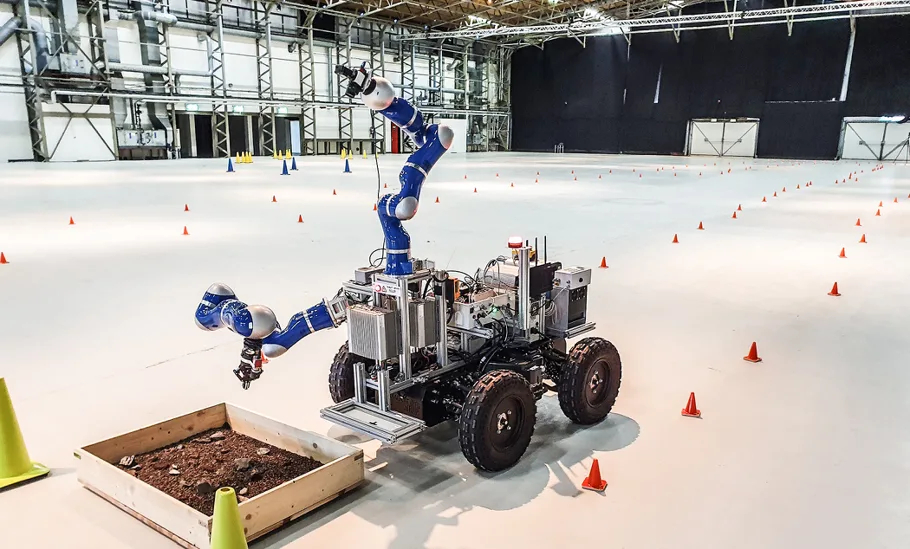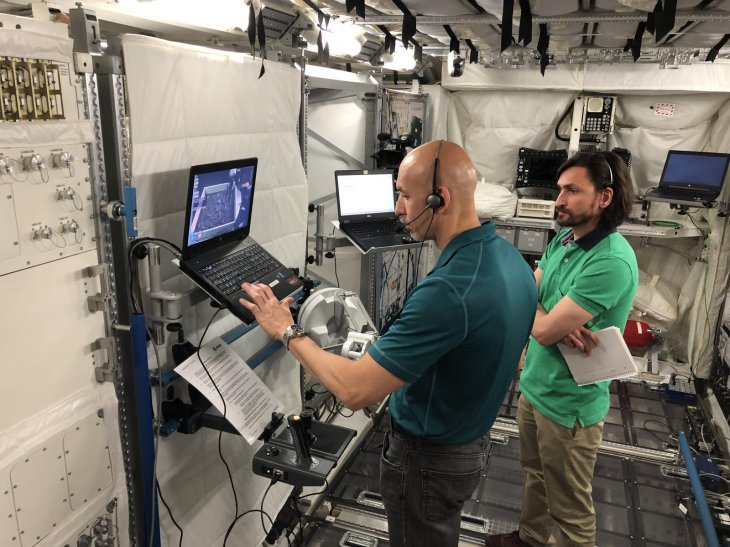Astronauts Will Test A Lunar Robot Aboard The ISS
Anil - Oct 30, 2019

The purpose of the experiment is to test the coordination and communication between the astronauts in space and those on the ground.
- The First Space Hotel In The World Will Welcome 400 Guests
- Startup Builds Vehicle With Soviets Tech To Collect Space Garbage
- World's First Space Hotel To Begin Construction In 2025 With Rooms For 400 Guests
Robotic equipment and rovers operate in space largely due to the direction from Earth. Communication between the Earth and other planets via robots always has a certain latency, which is caused by the surrounding signals. For a successful message from Earth to Mars, it will take about 4 to 24 minutes. The lagging time may be detrimental to manual controls. However, this in the future can be improved when the astronauts control the engine remotely from orbit, on Mars or the Moon.

An experiment named ANALOG-1 is about to take place on the International Space Station, which is conducted by the European Space Agency. The purpose of the experiment is to test the coordination and communication between the astronauts in space and those on the ground, within the process of controlling a rover, which applies new technologies.
Through the experiment, the scientists will evaluate the effectiveness when the astronauts operate rovers in simulated terrain like the Moon while under the influence of micro forces. They will use rovers as the tools to collect as well as analyze soil and rock samples.

ANALOG-1 belongs to ESA's METERON project, which is an idea to generate and test advanced technologies applied by astronauts while exploring space.
Luca Parmitano is the astronaut who will participate in ESA’s test. He will control a remote rover as well as its arm, using a modern computer system and a joystick called Sigma 7. The test will take 2 hours, on a surface that is simulated like the Moon, located in the Netherlands. According to robot engineer Thomas Krueger, astronauts can identify what robots touch through force feedback from the control.
Talking about the significance of the ANALOG-1 test, William Carey, who is the lead investigator stated that the exploration of a harsh destination like space will be closely related to sending out robots before sending humans to check if there is water on undiscovered planets.
Featured Stories

Features - Jan 29, 2026
Permanently Deleting Your Instagram Account: A Complete Step-by-Step Tutorial

Features - Jul 01, 2025
What Are The Fastest Passenger Vehicles Ever Created?

Features - Jun 25, 2025
Japan Hydrogen Breakthrough: Scientists Crack the Clean Energy Code with...

ICT News - Jun 25, 2025
AI Intimidation Tactics: CEOs Turn Flawed Technology Into Employee Fear Machine

Review - Jun 25, 2025
Windows 11 Problems: Is Microsoft's "Best" OS Actually Getting Worse?

Features - Jun 22, 2025
Telegram Founder Pavel Durov Plans to Split $14 Billion Fortune Among 106 Children

ICT News - Jun 22, 2025
Neuralink Telepathy Chip Enables Quadriplegic Rob Greiner to Control Games with...

Features - Jun 21, 2025
This Over $100 Bottle Has Nothing But Fresh Air Inside

Features - Jun 18, 2025
Best Mobile VPN Apps for Gaming 2025: Complete Guide

Features - Jun 18, 2025
A Math Formula Tells Us How Long Everything Will Live
Read more

ICT News- Feb 18, 2026
Google's Project Toscana: Elevating Pixel Face Unlock to Rival Apple's Face ID
As the smartphone landscape evolves, Google's push toward superior face unlock technology underscores its ambition to close the gap with Apple in user security and convenience.

Mobile- Feb 16, 2026
Xiaomi Launches Affordable Tracker to Compete with Apple's AirTag
For users tired of ecosystem lock-in or high prices, the Xiaomi Tag represents a compelling, no-frills option that delivers core functionality at a fraction of the cost.

Mobile- Feb 17, 2026
Anticipating the Samsung Galaxy S26 and S26+: Key Rumors and Specs
The Samsung Galaxy S26 series is on the horizon, sparking excitement among tech enthusiasts.
Comments
Sort by Newest | Popular